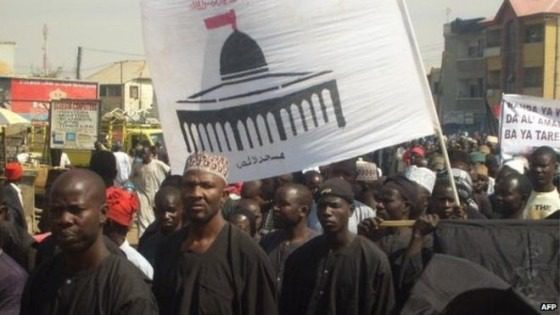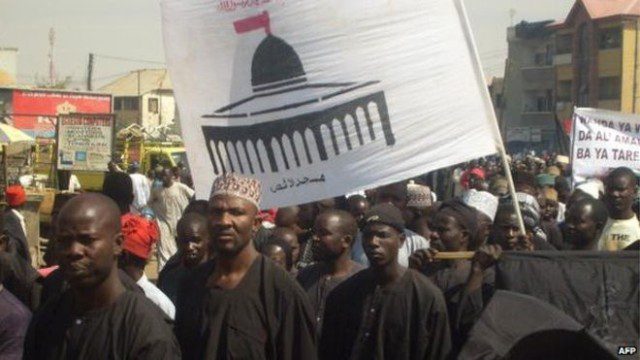National Issues
Islamic Movement in Nigeria: Ending the Killing Spree -By Jibrin Ibrahim

An investigation by Amnesty International published yesterday narrates the horrific use of excessive force by soldiers and police, which led to the killing of at least 45 supporters of the Islamic Movement in Nigeria (IMN) over two days, as the Shi’a Muslim group held peaceful religious processions around Abuja. The report states that: “We have seen a shocking and unconscionable use of deadly force by soldiers and police against IMN members. Video footage and eyewitness testimonies consistently show that the Nigerian military dispersed peaceful gatherings by firing live ammunition without warning, in clear violation of Nigerian and international law.” The chilling report concludes that the pattern of shooting “clearly shows soldiers and police approached IMN processions not to restore public order, but to kill.” Amnesty International has evidence that the military used automatic firearms during Monday’s protest, in which at least 122 protesters sustained gunshot wounds and at least 39 were killed. At least six people were killed in protests on Saturday. International law is clear that security forces policing demonstrations must not use firearms against protesters, unless they pose an imminent threat of death or serious injury, and only if there is no lesser way to avert such threat.
The report of PREMIUM TIMES by Samuel Ogundipe also affirms the bloody violence that erupted after Nigerian soldiers opened gunfire on Shi’ite protesters on the outskirts of Abuja on Monday afternoon, leaving over twenty members of the Islamic Movement In Nigeria (IMN) dead. The report adds that the fresh evidence collected by the newspaper throughout Tuesday questions the official account by the Nigerian Army, which said only three persons were killed. It perhaps also revealed the extent Nigerian authorities would go to downplay the death toll of civilian victims of a tragedy, an age-long practice that has worsened in recent years, despite the country being a member of various international convention on human rights.

It is very sad, disturbing and totally unacceptable that the Nigerian Army established to protect the lives of Nigerians would regularly resort to the use of a section of Nigerians as cannon fodder. The issue at stake is that the Nigerian State and its armed forces have taken the position that the group has no right to organise a procession to commemorate the death of a grandson of Prophet Muhammad and to protest for the release of their leader, Ibraheem El Zakzaky in detention since December 2015, despite repeated federal court orders for his release. The action by the Nigerian Army has once again led to serious reputational erosion as the national and international community continues to express its shock at the disproportional use of force against this movement, which unfortunately continues to present itself as stubbornly determined to continue to engage in its processions in spite of the consequences.
I am very concerned that the Islamic Movement In Nigeria has been treated as the greatest enemy of the Nigerian State. In October 2016, the Kaduna State government issued a legal notice in relation to the organisation. The order recognises that “Sections 38 and 40 of the 1999 Constitution of the Federal Republic of Nigeria have guaranteed the right to freedom of thought, conscience and religion and also the right to the freedom of association and peaceful assembly to all citizens respectively.” Nonetheless, the Order declared that: “the Society that bears the name, style, guise or nomenclature of the “Islamic Movement in Nigeria”, is hereby declared an Unlawful Society in Kaduna State.” The justifications for the order, according to the government, are the imperative for the promotion and protection of public safety, public order, public morality or public health; and/or the rights and freedom of all persons in Kaduna State.
The Order is anchored on the findings of a Judicial Commission of Inquiry into the clashes between the group and the Nigerian Army in Zaria between Saturday 12th and Monday 14th December 2015. The findings, says the government, draw attention to acts, which if allowed to go unchecked, will constitute danger to the peace, tranquillity, harmonious coexistence and good governance of Kaduna State. I had the privilege of serving on the Commission and my position has been that proscribing the IMN might not be the best path to the greatest good for the country. One of the challenges that confronted the Commission was that one of the direct parties to the confrontation, the IMN, neither sent memoranda nor appeared before it. Their counsel had written the Commission stating they had no access to the client and IMN leader, Ibraheem El-Zakzaky and therefore could not speak on his behalf.
The Commission found that the Islamic Movement In Nigeria and its leadership had, over the years, committed acts in breach of the law, peace and against good neighbourliness. These acts include IMN members committing unprovoked attacks on other citizens, illegal occupation of mosques and public and private buildings. IMN members have also shown total disregard for constituted authority and contempt towards the rule of law and security forces. Evidence was also adduced to show that they have engaged in provocative preaching, which have seriously provoked other religious movements, as well as government and its various arms. The Commission sadly had only one side to listen to.
On the Nigerian Army, the Commission ruled that there was no justification for the killings of the 12th to 14th December 2015 in Zaria. The Nigerian Army was wrong in “shooting its way” through the blockade set by the IMN that led to the initial killing of seven members of the IMN. While there was justification for conducting the cordon and search on the house of the IMN leader, given the claim by the Army of a large stockpile of dangerous weapons, the Commission found out that only one firearm (a locally made pistol) was however recovered from the said house. The other weapons retrieved included catapults, knives, swords, bows and arrows. These could hardly justify the force and intensity of the two-day show of superior firepower by the Army. The Commission therefore concluded that the use of such lethal force was inappropriate. In addition, the Nigerian Army had not followed its own rules of engagement and its actions were contrary to international standards. The Commission therefore recommended that steps should immediately be taken to identify members of the Nigerian Army who acted contrary to the rules of engagement and professional ethics and participated in the killings of the IMN members and other citizens onthose days in December 2015, with a view to bringing them to justice by prosecuting them, but this has not been done. There are therefore faults all round.
I will end this column with citations copied from the Facebook wall of Adamu Tilde posted on October 30, 2016: “I do not intend to make light of the Shiites crimes and transgressions, both real and imagined. Granted therefore, that the Shiites stand guilty of sectarian incitement, provocation, road blockage and wanton disregard for law and order, but no Nigerian sect or party can claim innocence on all those charges, and under our laws and norms, none of those crimes carries the price of a death penalty. Human life, according to all secular and religious conventions, is sacred, and no one has the right to take any life without recourse to law, to judicial due process, except in cases of obvious self-defence.”
Adamu Tilde then argued that: “Many have tried to strike a balance between condemning the Shiites and the actions of the military by drawing an imaginary ethical equivalence between alleged lawbreakers (the Shiites) and constitutionally mandated law-enforcers (the security agencies). But there is no moral equivalence nor ethical symmetry. There is only one denominator here, which is that of Nigerian lives being wantonly wasted without any recourse to judicial process or rule of law.”
Adamu Tilde urges Nigerians to curb the culture of hate: “This culture of hate, intolerance and inter-sectarian suspicions bodes ill for interfaith and intrafaith relationships. As Sunnis, our children are taught to hate the Shiite-other, and Shiites are taught to hate the Sunni-other. Those indoctrinations subliminally paint the other as violent, conspiratorial and demagogic, and therefore incapable of peaceful coexistence and undeserving of our respect, tolerance and understanding. By doing this, we forget or negate one of the basic principles of our own faith where diversity is seeing as a manifest of a divine design and guidance as a function of divine will.”
My final quote from the wise Adamu Tilde is: “We must strike a balance between fundamental human rights and collective national interests, by working towards entrenching justice and respecting and protecting the fundamental human rights of all Nigerians, irrespective of the God they worship or ideology they profess, in a way that does not harm the collective peace and stability of our people.”
A professor of Political Science and development consultant/expert, Jibrin Ibrahim is a Senior Fellow of the Centre for Democracy and Development, and Chair of the Editorial Board of PREMIUM TIMES.



















